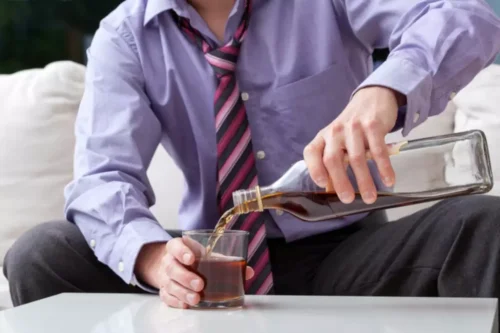Alcohol Withdrawal Hot Flashes: Symptoms, Timeline, Causes & Treatment

For some people, consuming an excessive amount of alcohol can cause unpleasant side effects such as sweating after drinking. Alcohol withdrawal is a common reaction in people with alcohol use disorders when they suddenly stop drinking or go a while without having alcohol. Alcohol withdrawal syndrome (AWS) is usually an uncomfortable process, which is why it’s recommended that people undergo medical detox to safely recover from withdrawal.
Effects on the heart and blood vessels
- To address this reaction, moderation, antacids, or taking medications before drinking can help.
- This is why you may feel hot, and even sweat profusely when you drink alcohol.
- Inconsistent flush reactions can be due to various factors, including alcohol type, quantity consumed, and individual tolerance.
The recommendation to drink a hot toddy for a cold is based on several different factors. Similarly, like other alcoholic beverages, whiskey can have a soothing effect on our throat and help numb any discomfort or irritation. You need to be able to identify the signs of alcohol addiction so that you can ask for help and start recovery.
More on Substance Abuse and Addiction
They’re more common in people older than 40 with a long history of alcohol misuse. Withdrawal seizures usually happen https://ecosoberhouse.com/ 12 to 48 hours after your last drink. Get help right away if you or a loved one has an alcohol-related seizure.
When to see a doctor

Some people have a headache a few hours after drinking wine — especially red wine. But it’s different from a hangover, which may or may not include a headache. It’s possible that some chemicals in wine and how the body responds to them could result in a headache after drinking wine. More research is needed to find the exact cause of wine headache. A hangover is a group of unpleasant symptoms that can happen after drinking too much alcohol. As if feeling awful weren’t bad enough, frequent hangovers also are linked with poor performance and conflict at home, school and work.
- The longevity and severity of hangover symptoms depend on how much alcohol was consumed, how dehydrated you are, your age, and other conditions.
- Characteristics include the sudden reddening of the skin, particularly on the face and neck, and a sensation of warmth or heat.
- Have you ever woken up in the middle of the night in a pool of sweat?
- But acute alcohol consumption can stimulate this, increasing the production of several stress hormones including corticosterone and corticotropin.
This excess gas could lead to bloating in the stomach and belching (burping). Beer is carbonated, so it can lead to excess gas in the stomach and bloating. Mixing alcoholic drinks with carbonated beverages (soda or seltzer) could also result in excess gas.

Treatments can include medication and counseling, and it may be possible for you to moderate your drinking rather than quit altogether. A little bit of shaking after drinking can feel unpleasant, but it usually isn’t anything to worry about it. Try to take it easy for the day and make sure to drink plenty of fluids and eat something. Aspirin and ibuprofen (Advil, Motrin IB, others) can cause your stomach to make more acid, which can irritate your stomach. And acetaminophen (Tylenol, others) may cause serious liver damage if taken with too much alcohol.

Alcohol and its byproducts cause the body’s blood vessels to dilate (which can increase the amount of flushing the person experiences as well). Dilated blood vessels means that warm blood is moving closer to the surface of your skin, making the heat noticeable. Because your blood vessels have dilated, your body may begin to sweat since your temperature has changed. If you’re physically dependent on alcohol, sudden withdrawal can result in night sweats. If you experience frequent night sweats due to drinking, you may have a drinking problem.

Does Alcohol Withdrawal Cause Night Sweats?
Lean on the people around you, and, if you need to, reach out to a mental health professional to speak about your stress and what you’re going through. A hangover usually begins a few hours after you finish drinking, as your blood alcohol concentration (BAC) begins to fall. Generally, symptoms peak when BAC hits zero, but can continue for up to 24 hours afterward.

If you are concerned that you have become too dependent on alcohol, consult your doctor. They can discuss the issue with you and arrange appropriate treatment. To keep health risks from alcohol at a low level, it’s important to follow the guidelines. The UK Department of Health’s Low Risk Drinking Guidelines advise that it is safest not to drink over 14 units a week1.
A person should seek immediate medical attention if they experience these symptoms. Alcohol can cause the heart rate to quicken or the heart rhythm to become irregular. Sugar alcohols such as fructose, lactose, raffinose, and sorbitol are found in foods such as fruit. However, some does alcohol make you sweat sugar alcohols, such as sorbitol, may also be in some processed foods and beverages to sweeten them. Enabling occurs when someone else covers up or makes excuses for the person who has a SUD. As a result, the person with a SUD doesn’t deal with the consequences of their actions.
Leave a reply